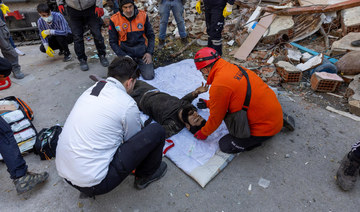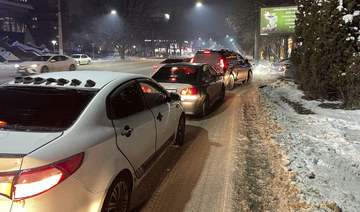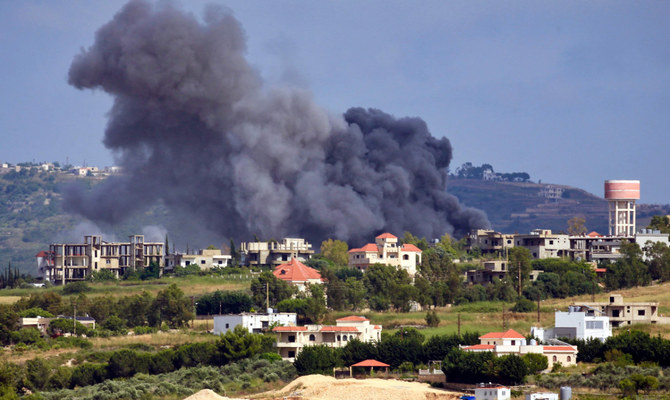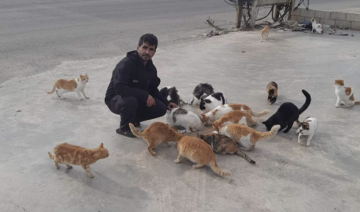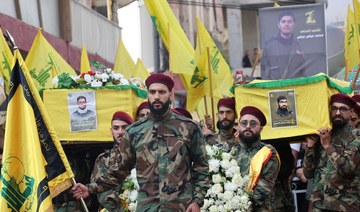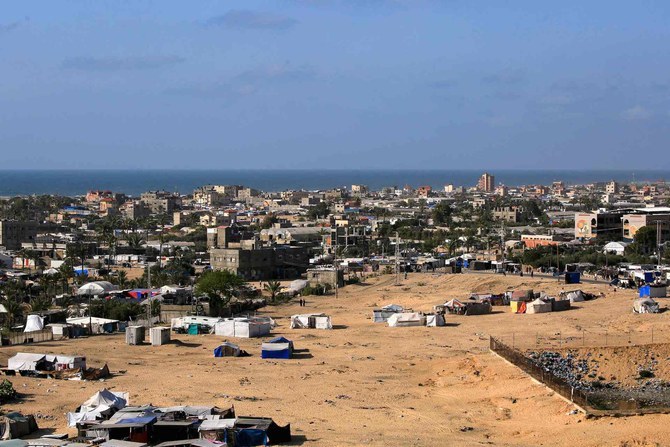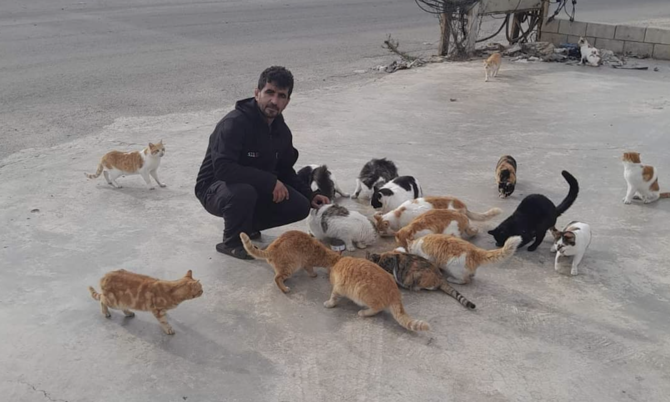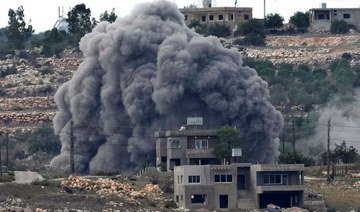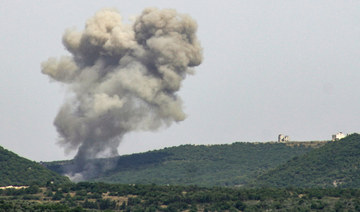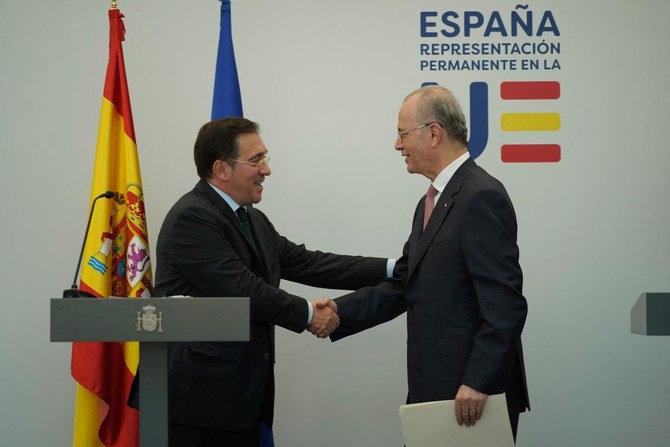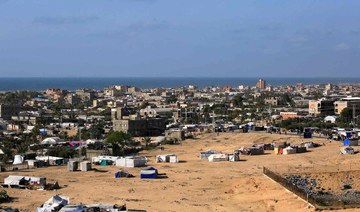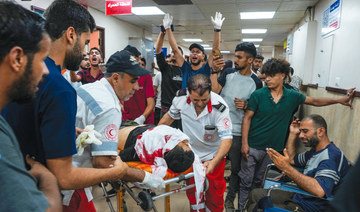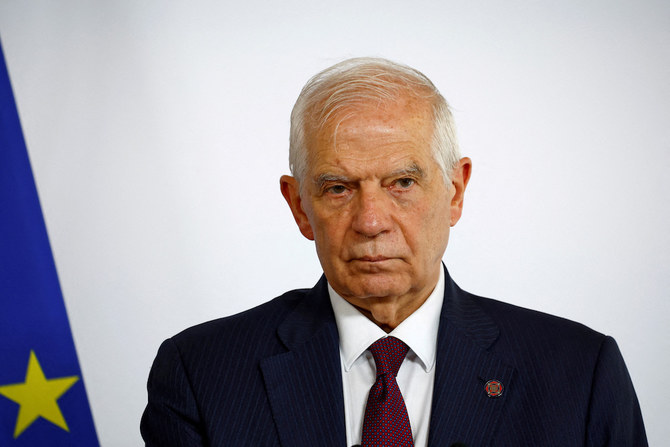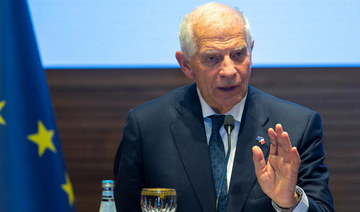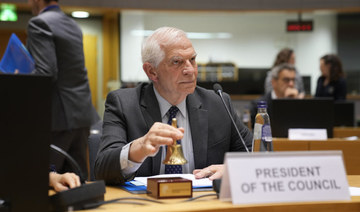IDLIB: Aya Al-Sudani, a bubbly toddler with a toothy smile, will mark her first birthday on Tuesday, but there will be no celebration with cake and presents. The day also marks a dark memory.
On Feb. 6, 2023, a massive earthquake hit Syria and Turkiye and the baby girl was pulled alive from the rubble of her family’s house in the town of Jinderis in northern Syria. She was still attached by an umbilical cord to her dead mother.
The girl was named “Baby Aya” — Aya is Arabic for “a sign from God” — by hospital workers but nicknamed Afraa in memory of her mother by the relatives who are now her guardians. The newborn was the only surviving member of her immediate family after the devastating quake that killed more than 59,000 people.
She was one of hundreds of children orphaned or separated from their families by the disaster, on top of many more who have lost their parents in the country’s nearly 13-year civil war.
Some 542 children were found “unaccompanied and separated” after the earthquake throughout Syria, said Eva Hinds, a spokesperson for the United Nations children’s agency or UNICEF. Some were eventually reunited with their parents, others placed with “close relatives or extended family, and some have been supported with alternative care,” she said.
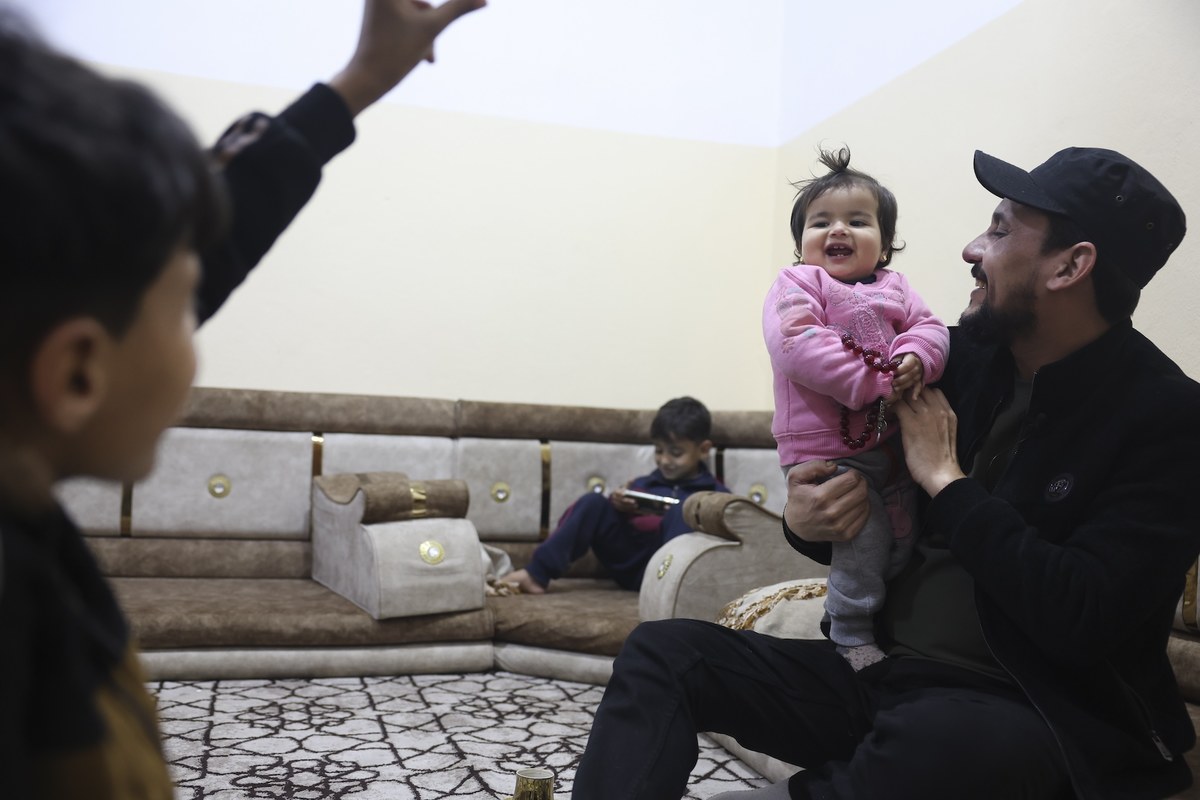
Afraa was pulled alive from the rubble of her family's house in the town of Jinderis in northern Syria, still attached by an umbilical cord to her dead mother
Local authorities in northwest Syria say at least 537 children lost a parent to the quake, although of those only 61 were recorded as having lost both their mother and father. The real number is likely higher.
A year later, those children have begun to adjust to their new reality, most of them living now with extended family while smaller numbers have ended up in foster homes or orphanages.
For many of them, losing their parents in the earthquake was only the latest in a string of tragedies.
“Almost everyone in Syria at this point has a personal connection to loss because of the conflict,” said Kathryn Achilles, a spokesperson for Save the Children ‘s Syria response office. “It’s not something that children should have to learn to live with … having to deal with loss and deal with displacement and deal with losing family and community.”
Yasmine Shahoud was 11 when the earthquake struck. Her family had been displaced from their hometown of Maarat Al-Numan to the town of Armanaz in northwest Syria, about 70 kilometers (45 miles) away. Despite the war, she remembers many carefree hours playing and laughing with her siblings after school.
On Feb. 6, their house collapsed, and she was buried under the rubble for 20 hours before rescue workers pulled her out. Yasmine’s arm and leg were crushed, requiring a series of surgeries. For the first few weeks, no one had the heart to tell the badly injured girl that her family was dead.
“When I arrived at the hospital, the child Yasmine was in a state of shock and didn’t understand what had happened,” said Ghaitha Al-Ibrahim, a social worker with the Syrian American Medical Society who has followed her case.
The girl stayed for several months in an orphanage to be near the hospital and because she needed intensive physical therapy. Now she is living with her grandfather, aunt and uncle and cousins, with whose help, she said, “I made it through a lot of hard steps.” Although she still walks with difficulty, she has gone back to school. She hopes eventually to become a pharmacist.
The first period was “very, very hard,” Yasmine said, but “thank God, I’m getting better.”
In the town of Harem in Idlib province, where 8-year-old Hanaa Shreif now lives with her grandfather and uncle’s family, she likes to play with her baby cousin, born after the earthquake, who was named Mahmoud at Hanaa’s request after her deceased father.
Hanaa’s parents and sister died in the quake and Hanaa was trapped under the rubble for 33 hours. At first, doctors thought her hand would have to be amputated.
“She asked about her family, her mother and her father, and bit by bit we told her that they had gone to heaven,” said her uncle, Ali Shreif.
After the earthquake, some children “were found in the streets, in garbage dumps, in front of mosques or among the fields who had been abandoned,” said Alaeddin Janid, founder of Child Houses, a non-governmental organization that runs two shelters for orphaned or abandoned children. The organization works to reunite them with family members or place them in foster homes. Islam generally does not recognize legal adoption but encourages providing long-term guardianship to orphans.
Their center was badly damaged in the earthquake — although staff and children managed to get out safely — and they had to quickly secure another location to be able to receive the flood of children orphaned or separated from their families by the quake. Some of the shelter staff buried their own loved ones and then came back to work.
They were soon caring for about 100 children in their shelters, which before would host no more than 35.
“About 70 percent of them, we were able to find their relatives and 30 percent, their family was all dead or the relatives had abandoned the child,” Janid said.
In those cases, he said, the group worked to place the children with vetted foster families. “An orphanage is not a suitable place for any child to begin his life.”
Despite the tragedy of her birth, Baby Aya — or Afraa — was one of the lucky ones. With no memory of the family she lost, the only parents she knows are her aunt and aunt’s husband who took her in. Their four daughters and two sons have become like her sisters and brothers.
The family has an apartment in Jinderis where they stay in the daytime, but at night they crowd into a tent in one of the area’s displacement camps, still afraid to sleep in a concrete building lest another earthquake should bring it down on their heads. Since the earthquake, the area lacks both work opportunities and schools.
The baby’s uncle and guardian, Khalil Al-Sawadi, said he hopes she will have the chance to study — possibly outside of Syria — and “take the highest degree, not like my children.”
The family will not celebrate her first birthday because “this day is a painful memory.” But he said, “I have hope at the same time because of the presence of Afraa, and we will tell her about this memory when she gets older.”




